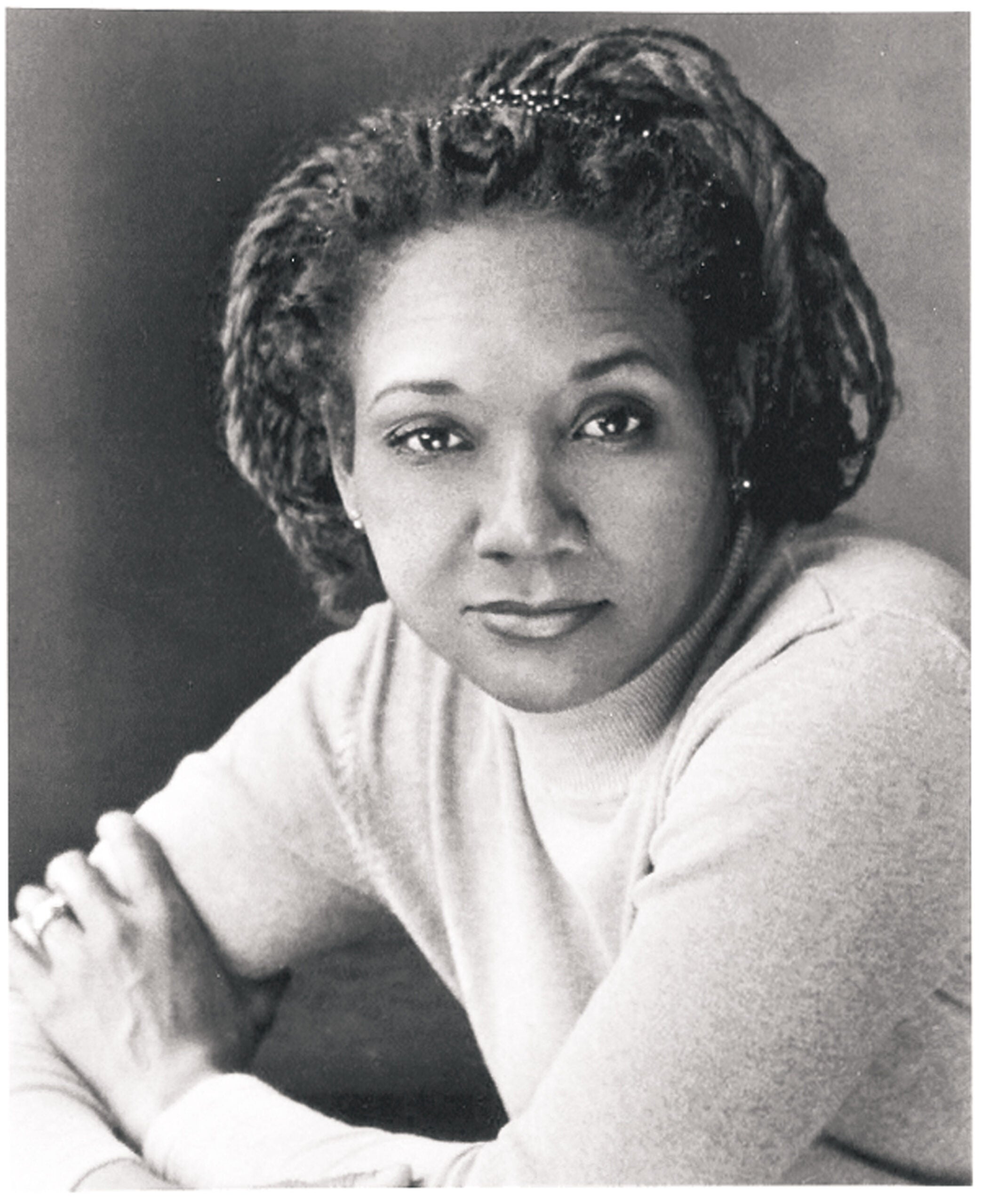Debra Dickerson ’95 never had more free time than when she attended Harvard Law School. The fruits of that free time will, she expects, challenge and even infuriate some of her fellow graduates.
In her new memoir, An American Story (Pantheon Books, September 2000), Dickerson offers her analysis of the HLS experience and its students as a coda to an autobiography filled with determination, hurt, achievement, and struggle. It is a story about a black girl growing up in an impoverished Saint Louis neighborhood with a father who never spared the rod. It is a story about an Air Force officer, an HLS grad, a widely read journalist. It is a story started during Dickerson’s free time at HLS, time that she could savor after life in service to the U.S. military and her father, a rigid disciplinarian whom her family eventually fled. Time enough to scrutinize the attitudes and behaviors of those around her.
“Coming from my background, I was just appalled that more people [at HLS] weren’t dancing in the streets with joy and a sense of incredible good fortune,” she said. “I was appalled by how little work large numbers of people were interested in doing, by littering in the Hark, by talking in class and being disrespectful of teachers.”
In her book, she calls the Black Law Students Association “a typical association of pampered twenty-somethings who couldn’t decide whether or how to take themselves seriously,” and criticizes members for being more concerned about minority representation on the HLS faculty than about the black underclass in America. Because of these opinions and others, she thinks she’ll be “viciously attacked” by some of her classmates over her book.
Dickerson is accustomed to the glare of criticism, however, from blacks and whites, liberal and conservatives. “When I write things that are not the conventional wisdom about the black community, I get called an Uncle Tom, self-hating, and craving white folks’ approval,” she said. “That happens to me on average once a week.”
But, she said, “I refuse to be silent, whether I’m with poor people or in the halls of Congress. I don’t back down.”
Currently a senior fellow at the New America Foundation, a nonpartisan public policy institute, Dickerson has had a post-HLS career in journalism that has taken her to U.S. News & World Report, the New Republic, the Nation, Slate, and the Village Voice. She has opined on race and culture from her own perspective, beholden to no party line. In one widely discussed piece, she imagined the man who had shot her nephew on the street and paralyzed him. The assailant was then unknown, but his character was all too familiar to Dickerson. “A non-job having, middle-of-the-day malt-liquor-drinking, crotch-clutching, loud-talking brother with many neglected children born of many forgotten women,” Dickerson wrote.
She met the shooter later in prison. Her description, she said, was exactly right. But some would have preferred if she had never said it.
“What I usually get from black people is confused dismay and the equivalent of: ‘Why would you say that out loud?’ Nobody debates that I’m wrong and nobody debates me on the merits.” Her life story, she adds, gives her the credibility to speak out. “I’ve got a ghetto pass. I can talk about these things.”
Yet by dint of her own education and accomplishment, people often see her as different from the working-class blacks she grew up with. It speaks, she says, to the divide that continues to widen between the black “bourgeoisie” and the poor, that makes race only one factor in the intricate stew of an American story.
“I can’t stop being black, but the fact that I have a Harvard Law degree sets me apart. It sets me apart from most white people,” said Dickerson. “We are far away from the class- and color-blind ideals that most of us want to believe in.”
—Lewis Rice
